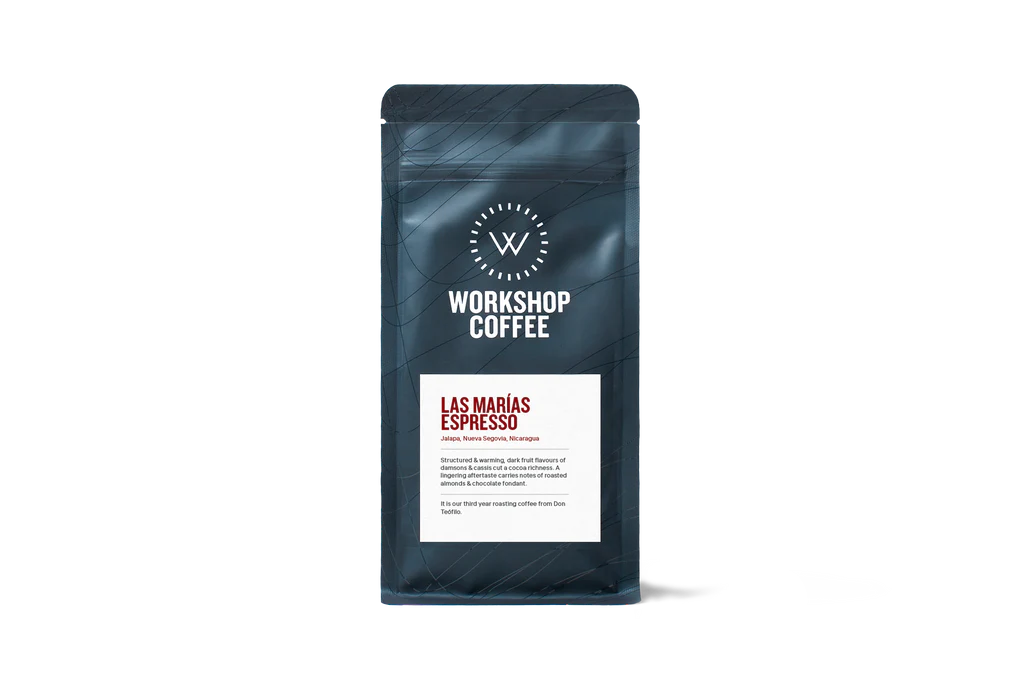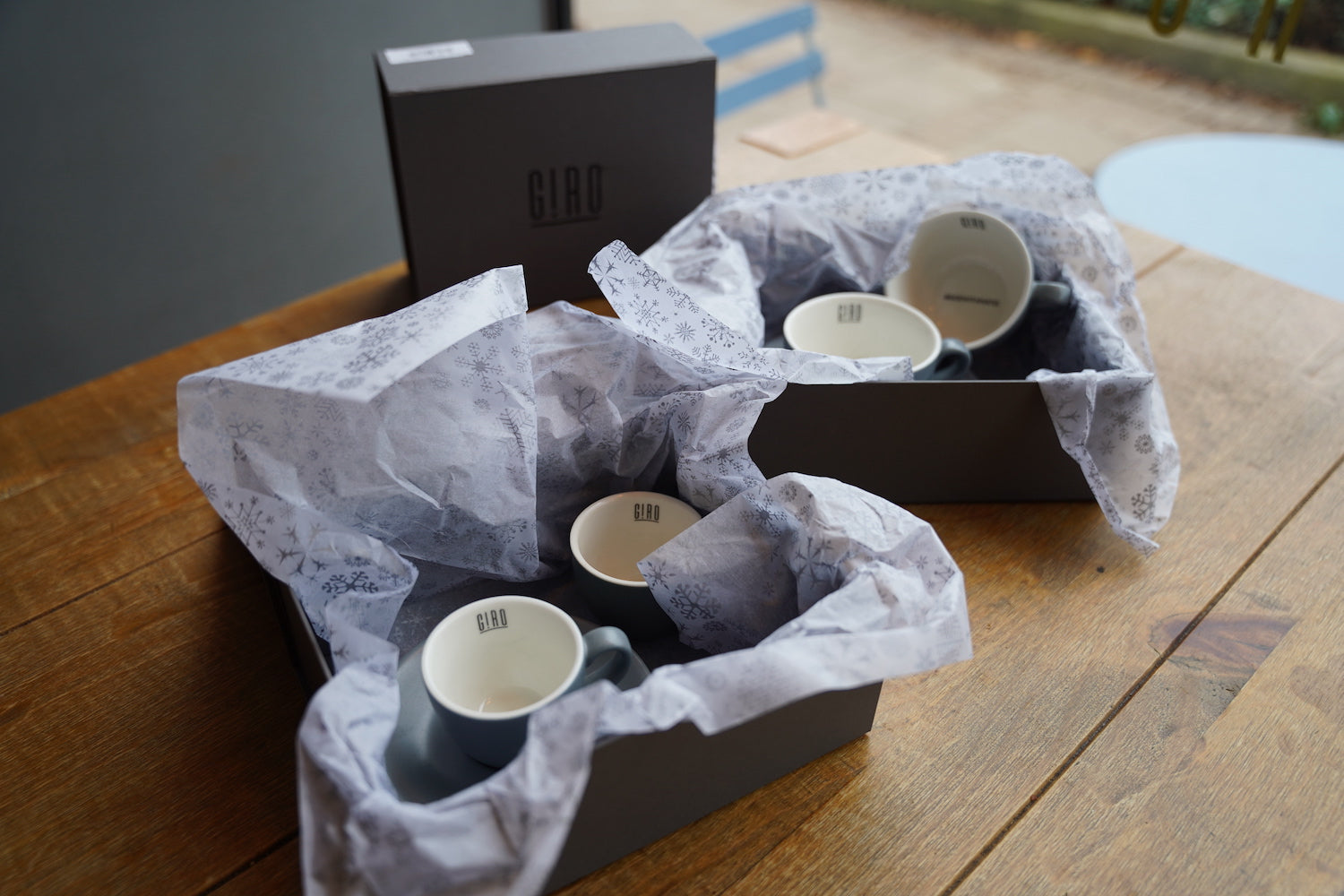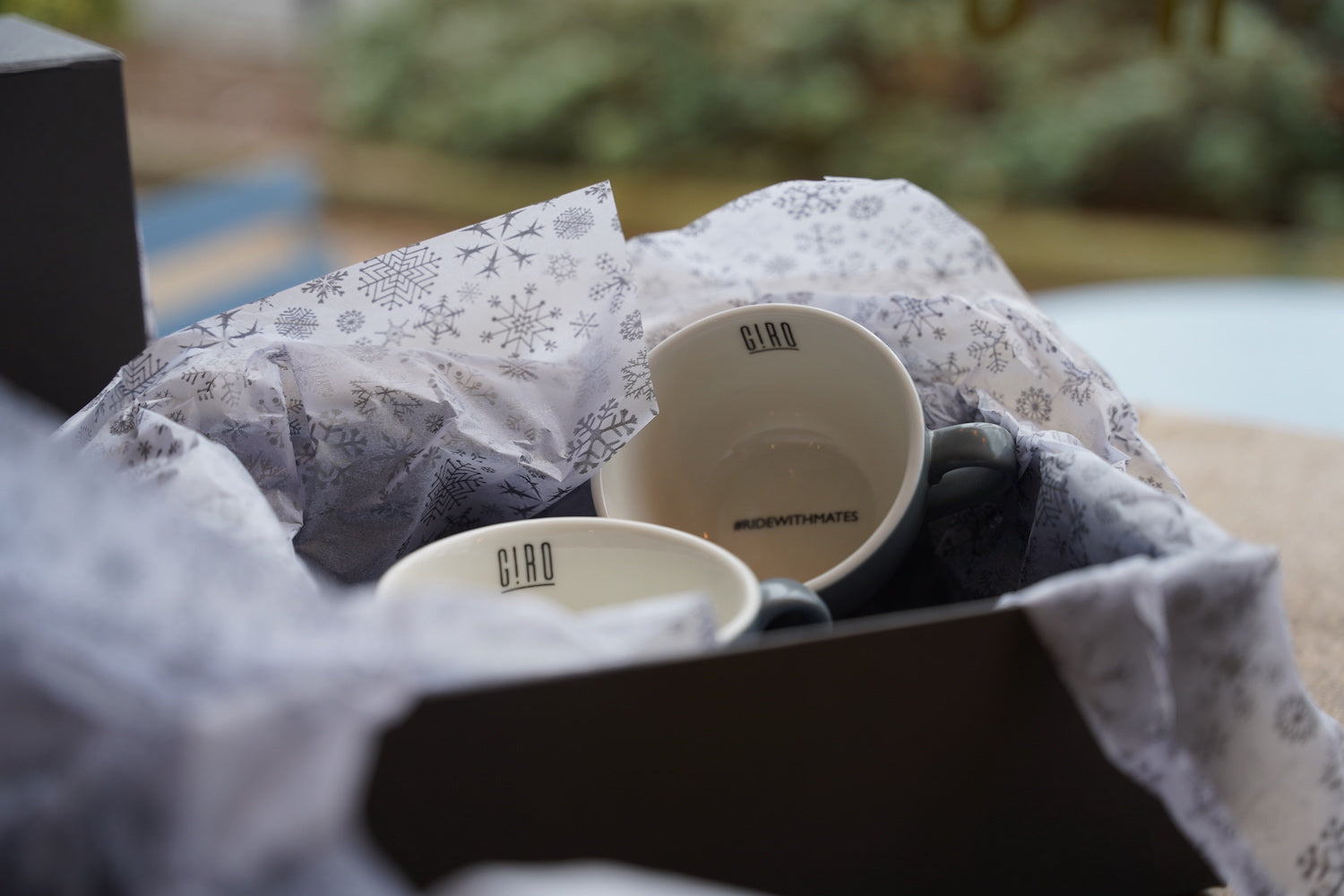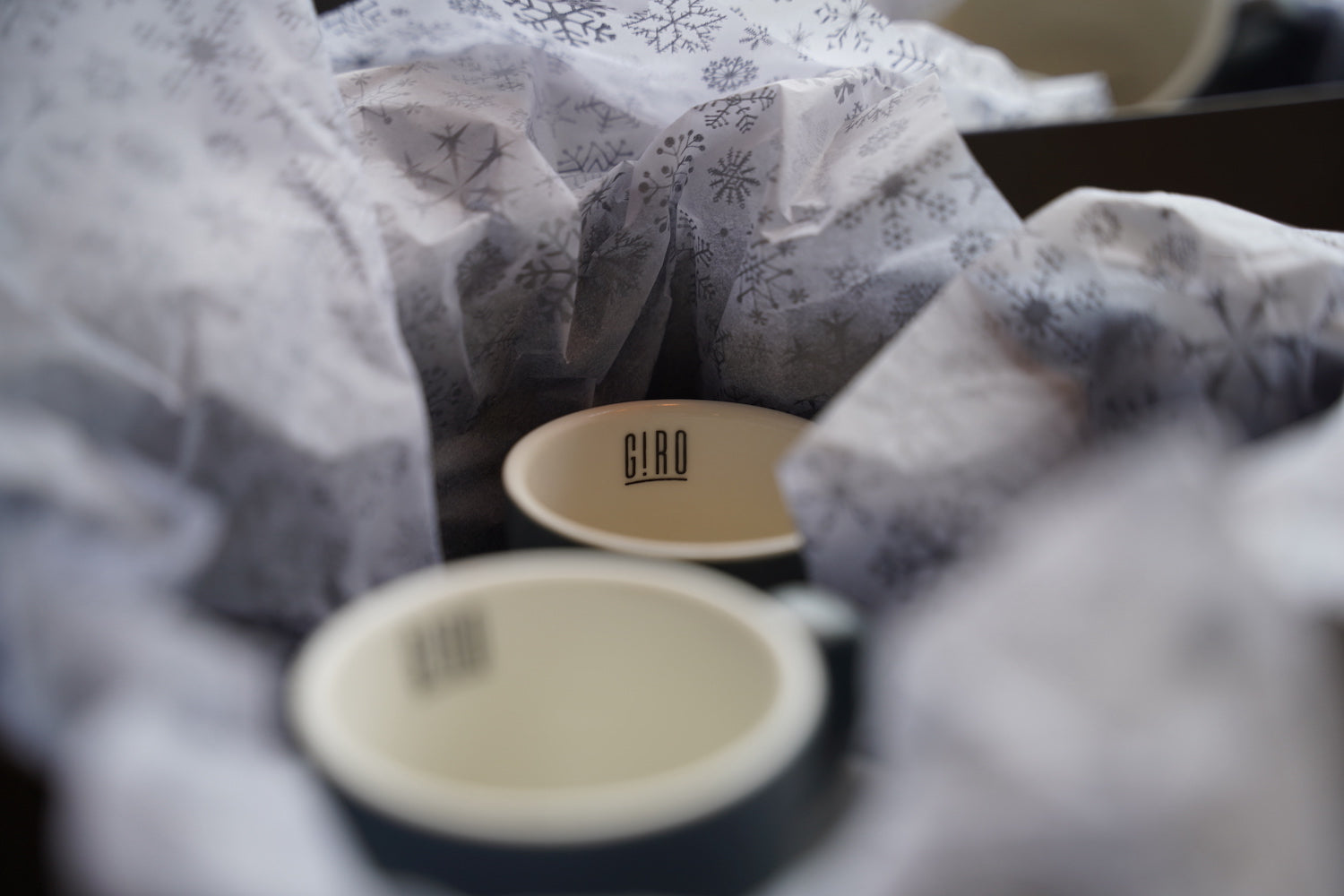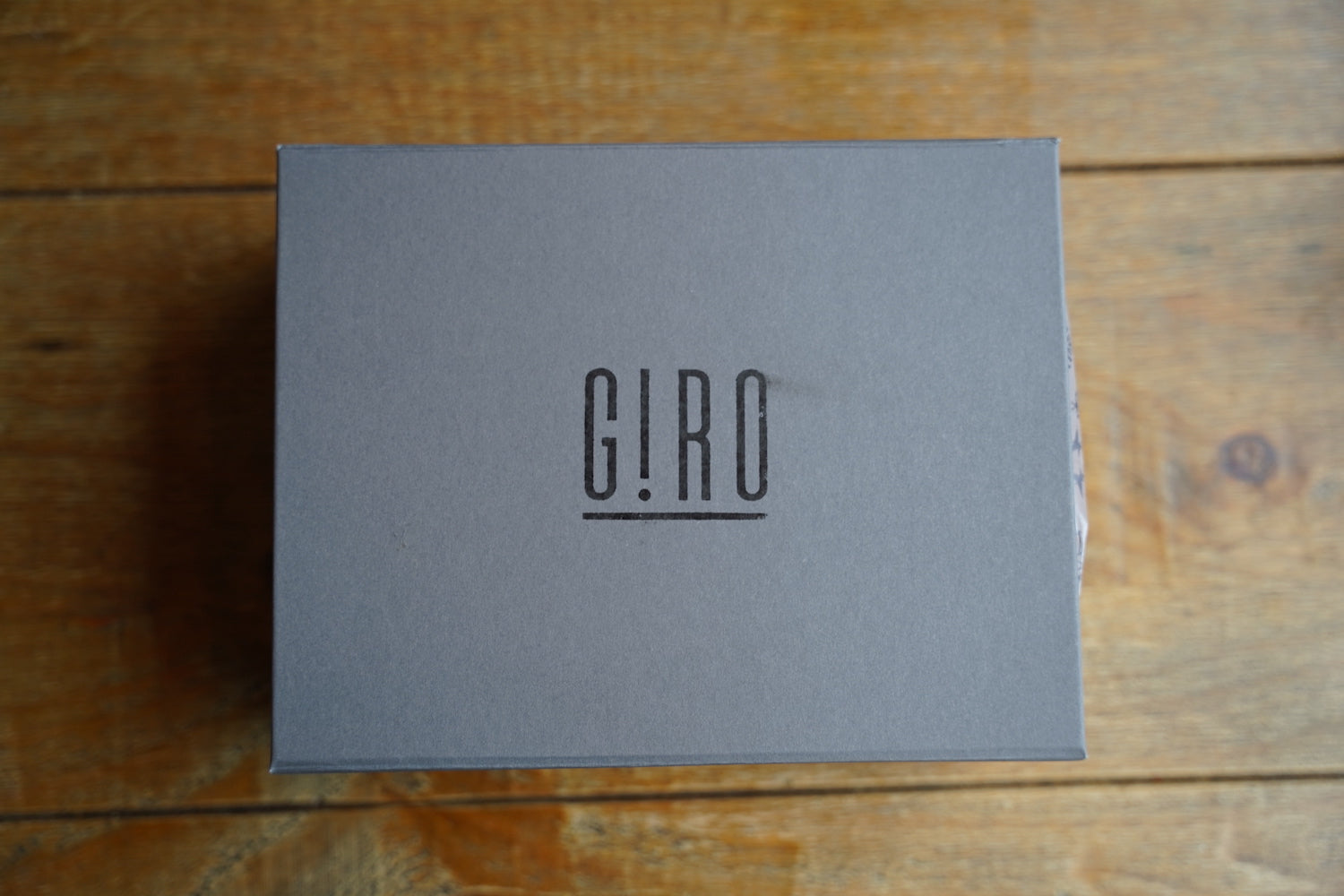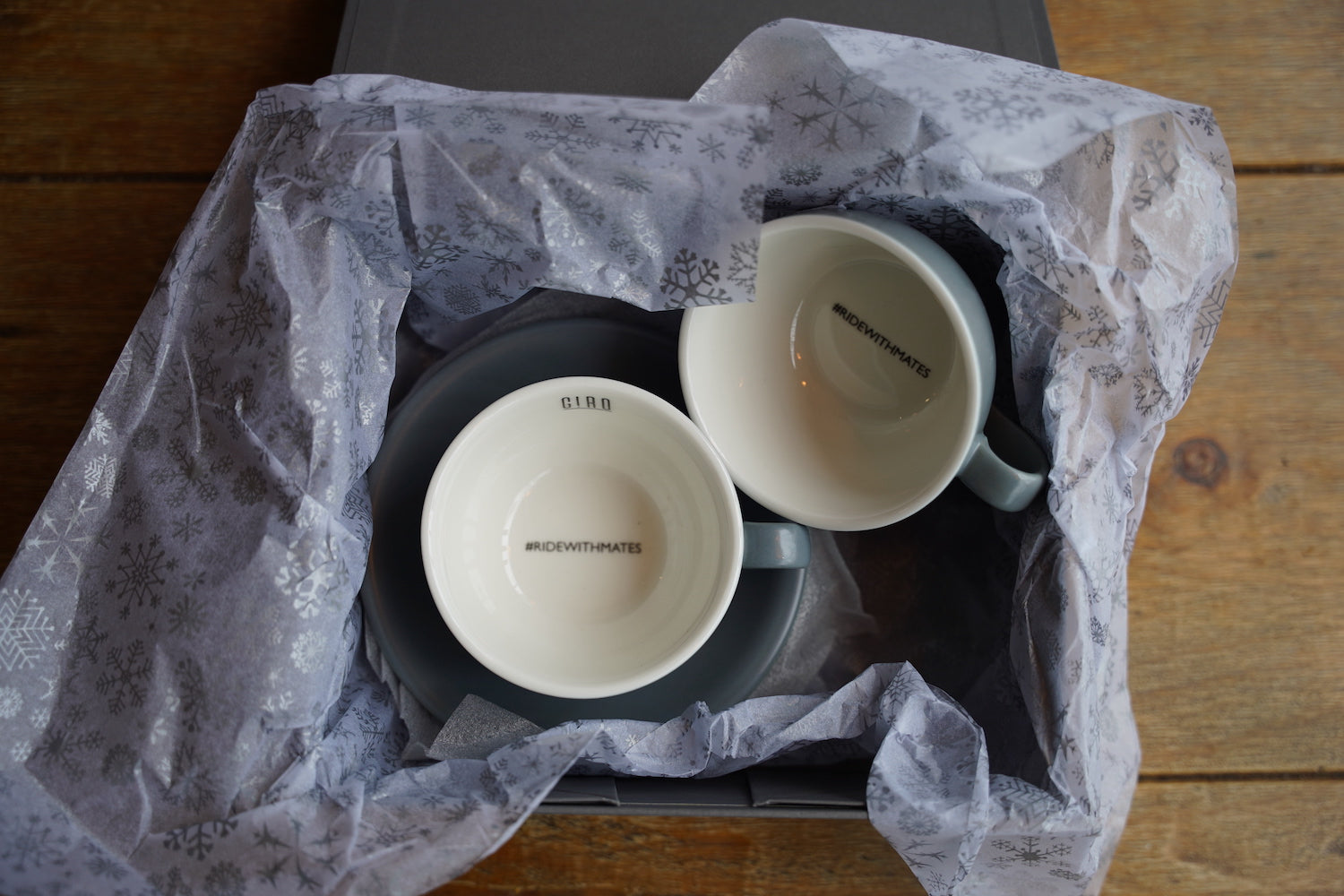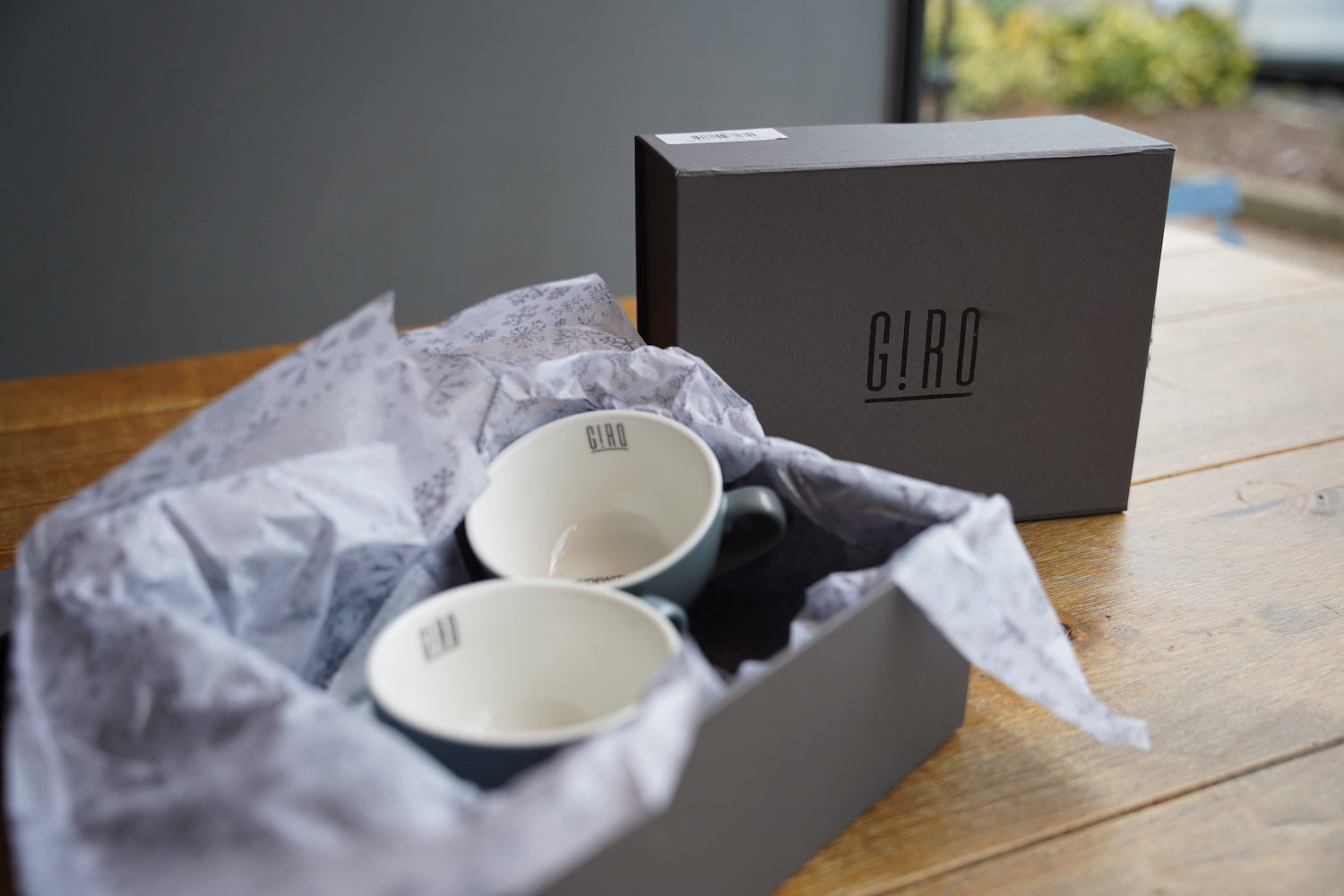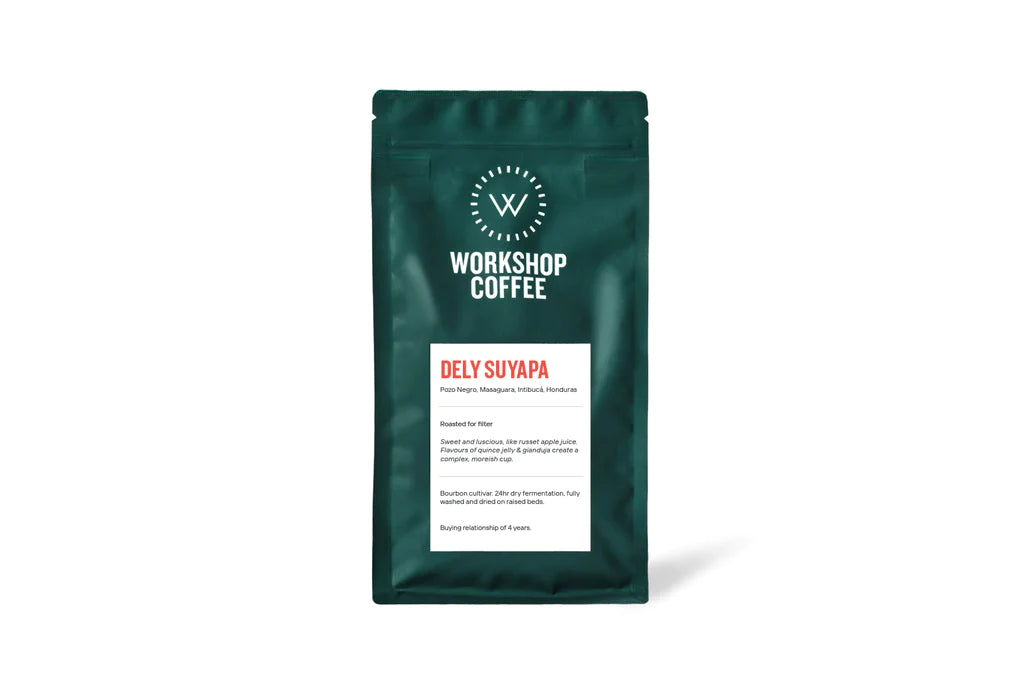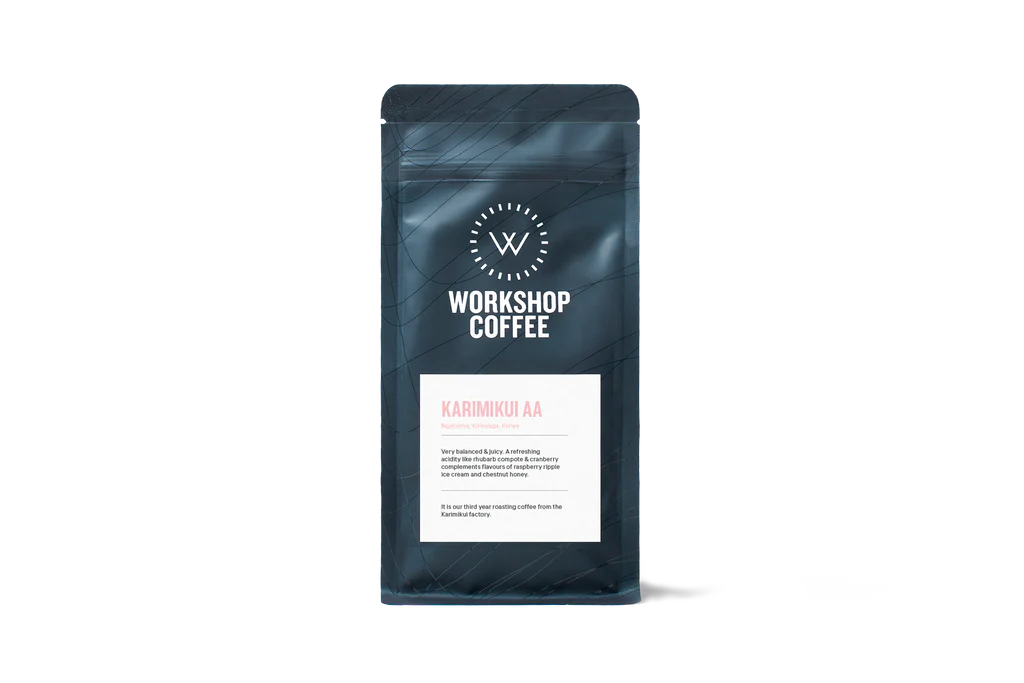Las Marias - Espresso - Nicaragua - 250g
12349
Sold Out £13.00
STRUCTURED & WARMING, DARK FRUIT FLAVOURS OF DAMSONS & CASSIS CUT A COCOA RICHNESS. A LINGERING AFTERTASTE CARRIES NOTES OF ROASTED ALMONDS & CHOCOLATE FONDANT.
COFFEE INFORMATION
Producer Teófilo José Narvaéz Rodríguez
Harvest February, 2023
Process Depulped & fermented for 26-30hrs, fully washed, dried on shaded raised beds.
Variety Marsellesa
Region Jalapa, Nueva Segovia
Altitude 1,300 to 1,450 metres
WELCOMING BACK THIS WASHED, SINGLE VARIETY LAS MARIAS ESPRESSO LOT. DON TEÓ’S NICARAGUAN COFFEE IS ONCE AGAIN TASTING COMPLEX, FRUITED AND INCREDIBLY ENJOYABLE ACROSS BLACK AND MILK DRINKS ALIKE.
The Producer & Farm
Near to the small town of Jalapa in Nicaragua’s Nueva Segovia region, Teófilo and his wife Alma Iris Salgado Cardoza, have their 82-hectare farm, Finca Las Marías, of which 50 hectares are planted out with coffee. Don Teó has been producing coffee here for the last 22 years, after several years spent in rice and timber production.
They maintain a diverse portfolio of coffee varieties on the farm, with some traditional lines like Caturra and Catuaí, a recent introduction of Maragoygype, as well as some hardier coffees like Parainema, Catimor and the variety that comprises this lot we are roasting for espresso: Marsellesa. As well as a whole host of coffee varieties, Don Teó maintains a native tree canopy which provides shade for the coffee, as well as having planted Ingas, or Ice Cream Bean trees, which are nitrogen fixing.
The Variety
The first time we encountered Marsellesa was in a variety garden in Costa Rica, and it was described as a graceful plant, flowing like an elegant dress! It took several generations of propagating Marsellesa from an initial cross breeding of Timor Hybrid 832/2 x Villa Sarchi CIFC 971/10 in 1990 in Portugal, creating an introgressed Sarchimor, to get to the seventh-generation pure line, which was then introduced to Nicaragua around 7 years ago. This means that if you plant the seeds from a tree growing in the field you will reproduce the same plant characteristics.
From the initial F1 cross in 1990, the hybrid vigour was highly desired, but the variety was heterozygous. Today Marsellesa has become a desirable variety across Central America, as it offers resistance against leaf rust, is tolerant to coffee berry disease, and the plant is now homozygous, all the while being capable of producing specialty calibre coffee with a high-quality cup profile.
Working closely with World Coffee Research we are aware of recent hybrids being developed like Starmaya, which uses Marsellesa as a parent plant, which has been stabilised by breeding in male sterility which means achieving stability in a variety far quicker than propagating over several generations! We recently participated in cupping samples from WCR’s IMLVT (International Multi Location Variety Trial), tasting the 2022 pickings to score and detail specific flavour markers.
We were also one of 25 roasters around the world selected to taste and assess the initial 2021 harvest, the results of which have recently been published. They look at susceptibility to rust, tolerance to drought, fruit yield and other factors to do with performance in the field, as well as analysing what performs best in terms of cup quality. Marsellesa was the variety that won on cup score, beating SL28, Pacamara, Centroamericano and Batian.
The Exporter
We are lucky to have travelled around Central America with Don Teó’s daughter, Ana Sofia, who works for Caravela, with whom we sourced this lot. Caravela run their PECA program to provide agronomical support and training for their partnering producers.
Their operations in Nicaragua are quite unique, in that they purchase harvested and processed coffee parchment, undertaking the task of drying and stabilising lots of coffee at their two facilities, La Estrella beneficio near Jinotega and La Concordia near Ocotal in the north, where this lot was dried. In a hot, dry climate, rapid drying of high quality lots can result in cup scores plummeting after a coffee ships. Instead, they employ a trained team to move lots from various tiers under differing degrees of shade, using specially designed rakes to comb through the drying lots, relying on tools like hygrometers and thermometers, to ensure each lot of coffee gets the utmost care during the drying stage. This results in coffees that hold up remarkably well after shipping, locking in positive flavour traits for an extended period, enabling us to buy larger volumes from trusted producers.
Related Items
G!RO - #RideWithMates Coffee Cups Gift Set
Sold Out £19.95
You asked and we delivered... That's right, introducing our G!RO #RideWithMates mugs.. The ultimate vessel for you #BrewAtHome aficionados. This year we introduced these awesome...
View full product detailsDely Suyapa - Filter - Honduras - 250g
£14.00
Tasting notes: SWEET & LUSCIOUS, LIKE A CARAMELLY RUSSET APPLE JUICE WITH LIGHTLY FLORAL HONEYED TONES. FLAVOURS OF QUINCE JELLY & GIANDUJA CREATE A COMPLEX,...
View full product detailsKarimikui AA - Filter - Kenya - 250g
Sold Out £15.50
Tasting notes: VERY BALANCED & JUICY. A REFRESHING ACIDITY LIKE RHUBARB COMPOTE & CRANBERRY COMPLEMENTS FLAVOURS OF RASPBERRY RIPPLE ICE CREAM AND CHESTNUT HONEY. COFFEE...
View full product details
© 2024 G!RO .

